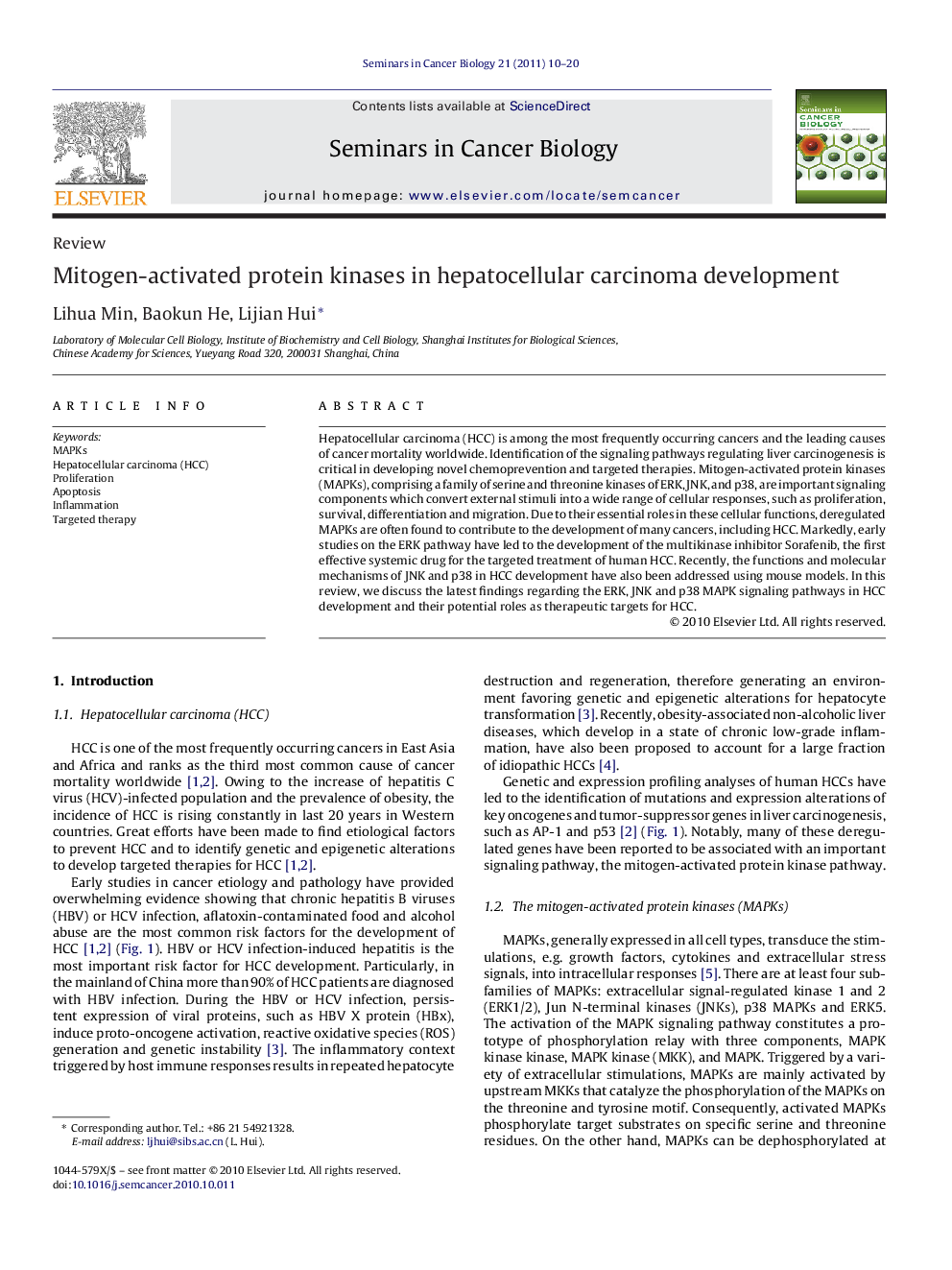| Article ID | Journal | Published Year | Pages | File Type |
|---|---|---|---|---|
| 2023920 | Seminars in Cancer Biology | 2011 | 11 Pages |
Abstract
Hepatocellular carcinoma (HCC) is among the most frequently occurring cancers and the leading causes of cancer mortality worldwide. Identification of the signaling pathways regulating liver carcinogenesis is critical in developing novel chemoprevention and targeted therapies. Mitogen-activated protein kinases (MAPKs), comprising a family of serine and threonine kinases of ERK, JNK, and p38, are important signaling components which convert external stimuli into a wide range of cellular responses, such as proliferation, survival, differentiation and migration. Due to their essential roles in these cellular functions, deregulated MAPKs are often found to contribute to the development of many cancers, including HCC. Markedly, early studies on the ERK pathway have led to the development of the multikinase inhibitor Sorafenib, the first effective systemic drug for the targeted treatment of human HCC. Recently, the functions and molecular mechanisms of JNK and p38 in HCC development have also been addressed using mouse models. In this review, we discuss the latest findings regarding the ERK, JNK and p38 MAPK signaling pathways in HCC development and their potential roles as therapeutic targets for HCC.
Related Topics
Life Sciences
Biochemistry, Genetics and Molecular Biology
Biochemistry
Authors
Lihua Min, Baokun He, Lijian Hui,
